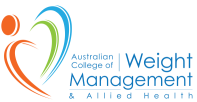As health professionals, we want to be seen as the experts in our respective fields and we want our clients to know that we will have an answer to just about anything they ask us. Sometimes however, wanting to be seen as an expert can blur the lines between what we think we know and what we are actually qualified or insured to give advice on or to do.
A common example of this is Personal Trainers who provide nutritional plans and advice to clients without having any formal training or experience in the field of nutrition. Sure, they may have experience in planning their own diet, or indeed the diets of close friends and family, but this not the same as a formal qualification in prescribing diets and eating plans for a broader population. Now, there is nothing wrong with providing general guidelines for clients to follow (such as referring them to the NRV website), but when it comes to planning specific eating plans, they should be referred on to an insured nutritionist, weight management practitioner or dietician who has the necessary training. So often this doesn’t happen, and clients are prescribed an eating plan that doesn’t work with their lifestyle and potential food intolerances which can lead poor results, health problems and eating disorders in the client and an end to your career.
There are several reasons why this happens. Some of the main ones are that trainers want to be seen as an expert in the eyes of their clients and provide them with as much value as possible. Also, they may see other trainers providing eating plans to their clients, which can lead to a fear that if they do not do the same, their clients will not value their service as much, and potentially go to another trainer. However, being able to admit that you do not know something outside your field of expertise does not make you expendable, it makes you a professional who takes their carer seriously and human! As a human it is impossible to know everything. By admitting that and being able to correctly refer a client on to a professional in another field, you are looking out for their best interests and most of the time a client will see and appreciate this. Also, identifying gaps in your knowledge presents the opportunity for self-development and growth into different fields if so desired.
The best thing we can do as health professionals is to gain as much knowledge as possible in our field or fields of expertise, which will then transfer into more value for our clients and for ourselves. Knowing when certain questions and skills are outside our training, scope and/or knowledge is invaluable. It allows us to refer on to other experts and potentially create new professional connections, as well as continue to provide service to our clients, even if in part through a third party. By staying in your lane and perfecting what you do, you will be able to provide the best service possible to your clients.
Take home points
- Focus on staying in your lane and developing the skills you want to develop
- Wanting to be seen as expert all the time can lead to you giving poor advice. No one knows everything
- Work on accumulating as much knowledge as possible in your chosen field/s and understand when something is outside your scope and knowledge base
- Most people will appreciate your honesty if you say you genuinely don’t know something
- By referring them to another expert, you are continuing to provide value as well as open opportunities to network with other professionals
- There are always opportunities for self-development and growth. Everything you learn provides value to you and your clients

